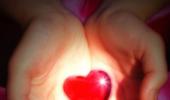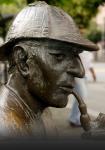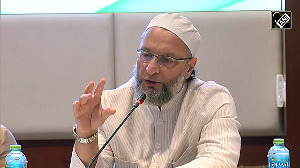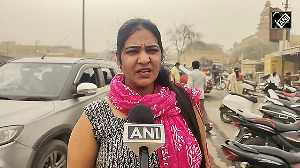Any one over the age of 40 complaining of sudden onset of chest pain, breathlessness, uneasiness, palpitations could be having a heart attack, says Dr Aparna Jaiswal.
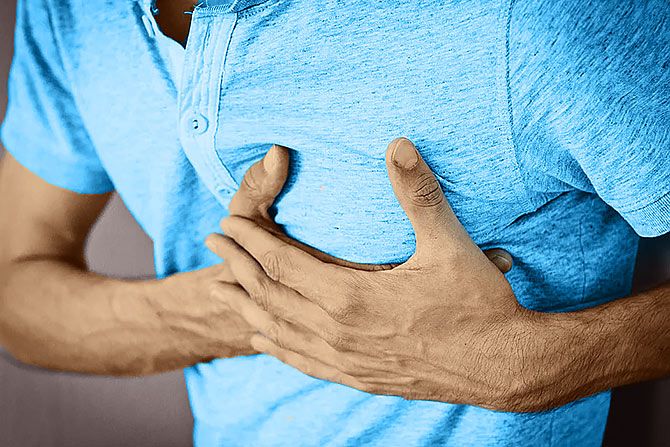
Doctors do save lives, but they may not be always around when you need them the most.
What can you possibly do if someone you know faces a medical emergency at your workplace, at your gym or while travelling in a public transport?
Heart attack is one of the most ignored and largest causes of deaths in India and the world.
It becomes imperative to know how to save your loved one in an emergency.
How to identify if someone is having a heart attack
It is important to pick up the early warning signs.
Any one over the age of 40 complaining of sudden onset of chest pain, breathlessness, uneasiness, palpitations could be having a heart attack.
The chest pain may or may not radiate to left hand and often varies from central crushing or stabbing pain to mild dull aches, to a feeling of heart burn, epigastric discomfort bloating and belching.
This is often accompanied by intense sweating and a feeling if impending doom. Dizziness, nausea may be present as well.
If these symptoms persist for more than 15 minutes, it’s usually a clear indication of heart attack.
If the person is unconscious...
Apart from these signs, there have been patients who have collapsed and lost consciousness. There is a way to help them without panicking.
If the patient has not lost complete consciousness but only partly, he or she should be moved into a comfortable position.
All clothing should be loosened to allow for easier breathing.
If the patient is a heart patient one should check if he is carrying Nitroglycerine tablets. These can be administered immediately.
Aspirin tablets should also be chewed immediately.
It is at times like this that people realise the importance of being trained in CPR.
If the person is unconscious, commence CPR provided you are trained to do one. And if there is AED (Automatic Defibrillator) available, follow the instructions of device.
One should also know basic life support (BLS) and every institution, offices or housing societies should have few people trained in these courses, which would prove to be useful at the time of emergencies.
As a precautionary measure, AED devices should be installed in all offices, malls, hostels and universities so that people trained in BLS can utilise them.
Last but the most important, in this era of traffic chaos, in case of a medical emergency, don’t wait for an ambulance to arrive.
Simply drive the person to nearest hospital with a cath lab and cardiology services.
It is prudent to inform the hospital about your estimated time of arrival in which case most hospitals have a system in place to directly transfer the patient to a cath lab for immediate stenting or required mode of treatment.

